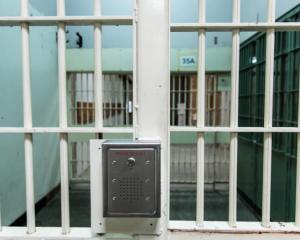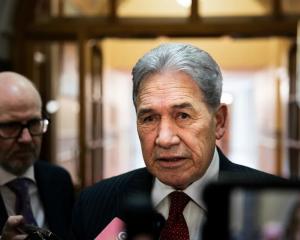
A new NCEA level 1 assessment is being introduced this year as part of the Government's curriculum refresh.
It is optional, has been refreshed, and offers fewer assessments.
North Canterbury principals say they still see merit in offering it to their students.
Rangiora High School principal Bruce Kearney said without a robust qualification, year 11 would effectively become a second year 10.
‘‘If you do remove level 1, you really need to have an alternative pathway or qualification and I wasn’t confident we had that.
‘‘And I really like NCEA, I think it is a good qualification and I don’t believe in postponing it because it is too stressful because all you are doing is transferring that stress to level 2.’’
New Zealand Qualifications Authority deputy chief executive - assessment, Jann Marshall, said she expected the majority of schools to offer NCEA level 1 this year, with around 25 per cent opting out.
"There are a number of reasons for this, including a growing number of schools choosing to focus on their students attaining NCEA level 2 over two years.
"NCEA level 1 remains the highest qualification received by around 10 per cent of school leavers."
Ministry of Education curriculum centre programme director Derek Lyons said the new NCEA Level 1 will be fully implemented in this year.
But the implementation of Level 2 has been delayed to 2026 and Level 3 to 2027.
"This follows feedback from teachers and principals and the NCEA Professional Advisory Group, which has recommended these changes.”
Changes to level 1 will see just two internal assessments and two external assessments for most subjects, instead of the variety of assessment options available now.

Students will need 60 credits to pass level 1.
Changes to the much anticipated curriculum refresh were announced in April last year by the then Education Minister Jan Tinetti, with the Government prioritising maths, literacy, te reo Māori and pāngarau (support materials) learning.
While the Aotearoa New Zealand History curriculum took effect last year, other curriculum changes were being staggered out to 2027.
The Social Sciences, mathematics and English curriculums have also been released to be in place for 2025.
New curriculum for the sciences, technology and the arts will not be released until later this year, with health and physical education and languages curriculum not available until next year.
Kearney said the curriculum refresh was ‘‘frustratingly slow’’.
‘‘It is coming into schools at a drip-fed pace, which is frustrating because we wanted it to be a new curriculum.
‘‘Some subject teachers are already developing their learning resources, while others are still waiting - and then we have a new government. It is quite a difficult time for schools.’’
Oxford Area School principal Mike Hart said the slow rollout was ‘‘beneficial’’ for his school.
‘‘It means we can focus on a learning area at a time and spend time developing a localised curriculum.
‘‘We take the themes and we localise it. What does it mean in Oxford? How do we connect it to our community and what is our vision for our learners?’’
Kaikōura High School board of trustees presiding member John Wyatt said his school was sticking with NCEA level 1.
He said it was a challenging time to be in education.
‘‘What an enormous task our educators have. We used to just train people in (reading, writing and maths) and set them on a career path for life.
‘‘But the world is changing. In 25 years, they predict about 30 per cent of jobs will no longer be there.’’
Wyatt said the new curriculum needed to provide ‘‘a stepping stone for tertiary education and for life’’.
Rangiora New Life School, Oxford Area School and Kaiapoi High School are also sticking with level 1.
Kaiapoi High School principal Jason Reid said having fewer assessments will reduce teacher workload.
He said students will need to be more consistent across their subjects to achieve the credits needed.
‘‘We still see the value of level 1 because some students may leave school at the end of the year, so at least they’ve got something to show for their time at school.’’
All principals said the aim was to have all students achieve at least level 2 NCEA.
By David Hill
Local Democracy Reporting is local body journalism co-funded by RNZ and NZ On Air














